Find Help
More Items From Ergsy search
-

Understanding Your Sexual Health - Pelvic Inflammatory Disease
Relevance: 100%
-
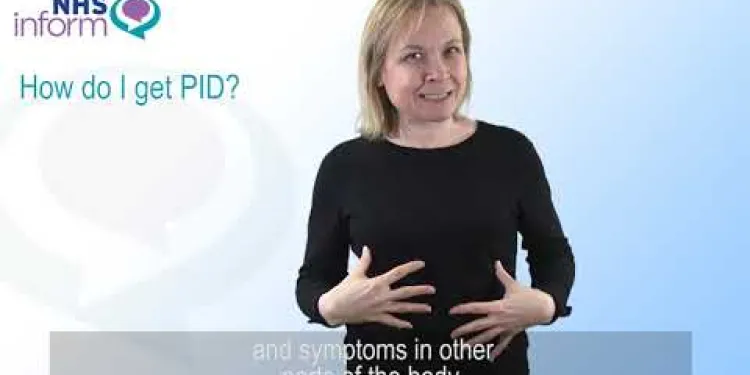
BSL Pelvic inflammatory disease (PID)
Relevance: 82%
-
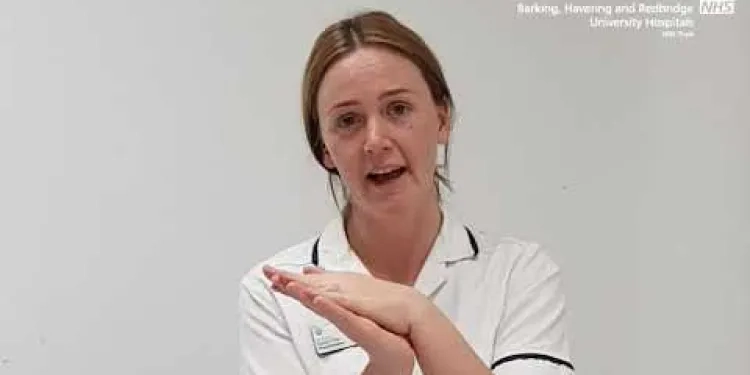
Pelvic health: prolapse
Relevance: 50%
-

Understanding Your Sexual Health - Gonorrhoea
Relevance: 49%
-
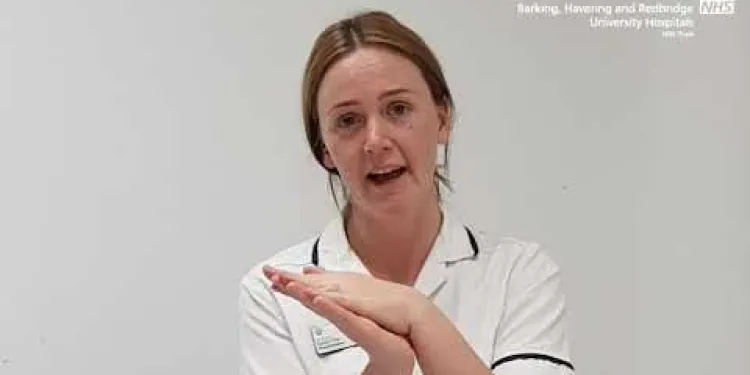
Pelvic health: prolapse
Relevance: 48%
-
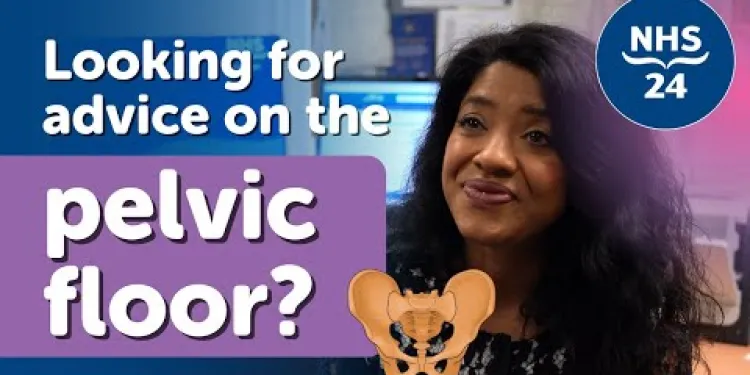
Your pelvic health matters: insights from NHS clinicians
Relevance: 45%
-
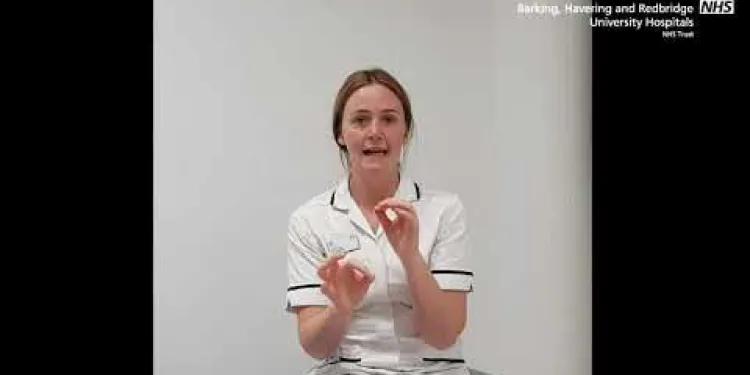
Pelvic health: Urge Incontinence
Relevance: 41%
-
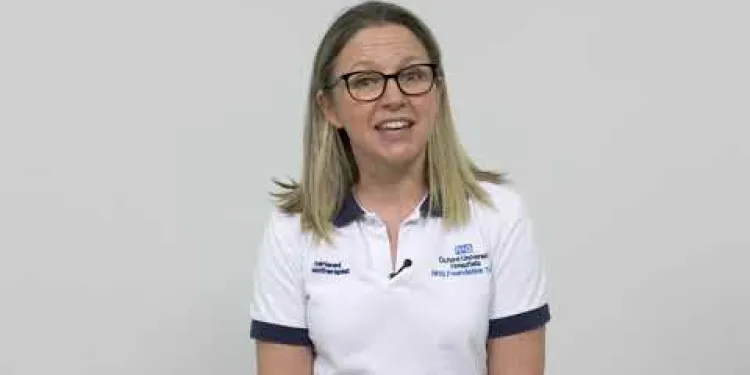
The Pelvic Floor Muscles - Developing an Exercise Programme
Relevance: 40%
-

The Different Roles in Sexual Health and Family Planning UK
Relevance: 40%
-
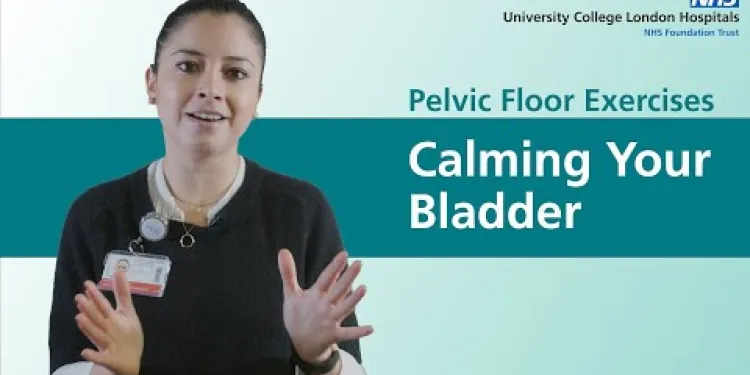
Pelvic Floor Exercises - Using Your Pelvic Floor to Calm Down Your Bladder
Relevance: 39%
-

Pelvic health: stress urinary incontinence
Relevance: 38%
-
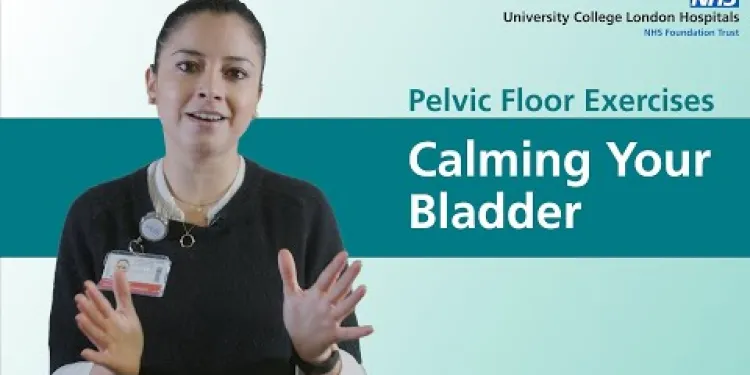
Pelvic Floor Exercises - Using Your Pelvic Floor to Calm Down Your Bladder
Relevance: 38%
-

Sexual Health - HIV Testing
Relevance: 38%
-
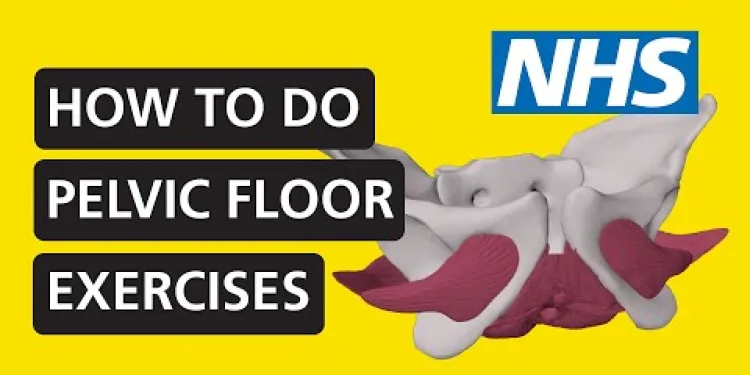
How to do pelvic floor exercises | NHS
Relevance: 37%
-

Understanding Your Sexual Health - Genital Warts
Relevance: 36%
-

Let's Talk Sexual Health - Home Self Testing Kits
Relevance: 36%
-

Let's Talk Sexual Health - Home Self Testing Kits
Relevance: 35%
-

Understanding Your Sexual Health - Herpes
Relevance: 35%
-

Sexually transmitted infections STIs
Relevance: 30%
-

Pelvic Girdle Pain Advice Class
Relevance: 29%
-
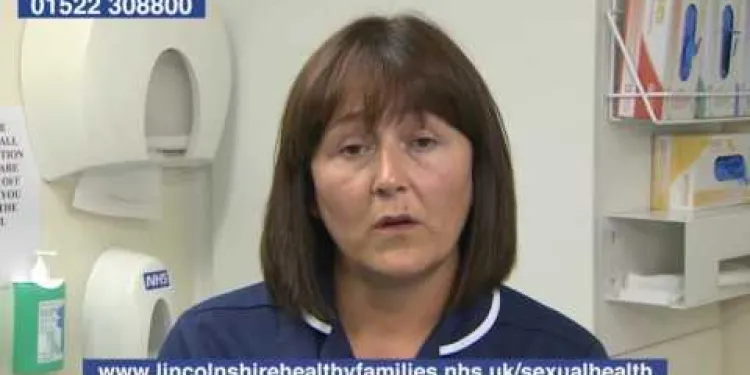
The symptoms of gonorrhoea
Relevance: 28%
-

Are there any long-term effects of gonorrhoea?
Relevance: 28%
-
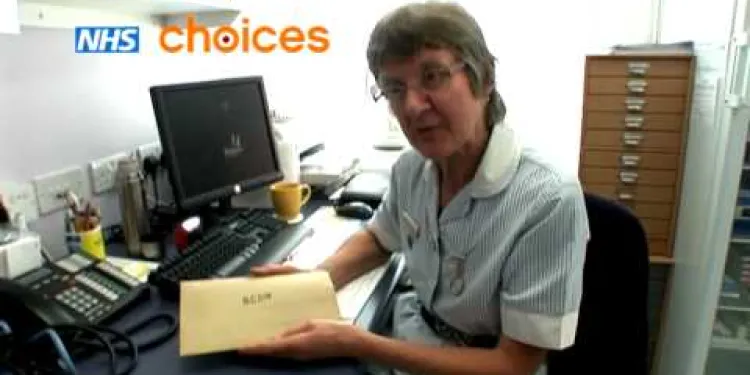
NHS - Chlamydia
Relevance: 27%
-
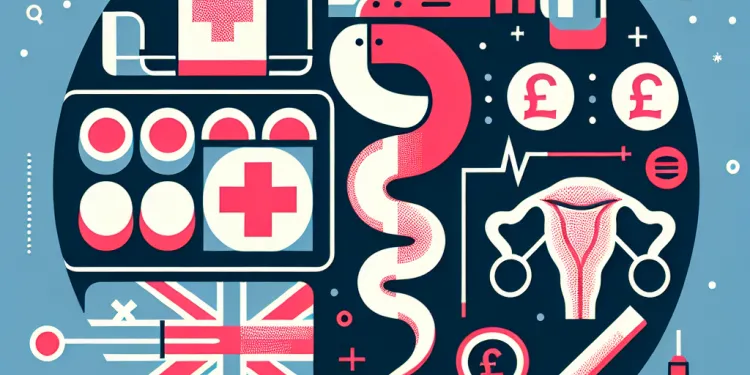
Can gonorrhoea be asymptomatic?
Relevance: 27%
-

What is 'the clap'?
Relevance: 26%
-
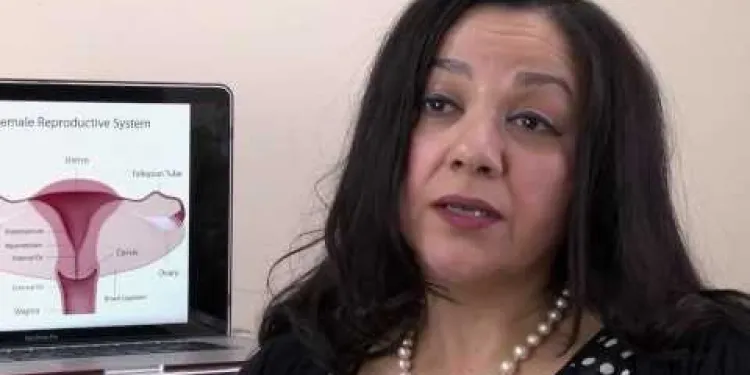
Chlamydia: The Silent Threat
Relevance: 26%
-

What is Gonorrhoea?
Relevance: 26%
-

NHS STI (Sexually Transmitted Infections) Information Video
Relevance: 25%
-

What is chlamydia?
Relevance: 25%
-

Three-year limit for child sexual abuse claims to be removed
Relevance: 25%
-

What Causes Erectile Dysfunction (ED) - Disease or Symptom - NHS A to Z - Dr Gill
Relevance: 25%
-

Mat and gym ball exercises with pregnancy related Pelvic Girdle Pain
Relevance: 25%
-
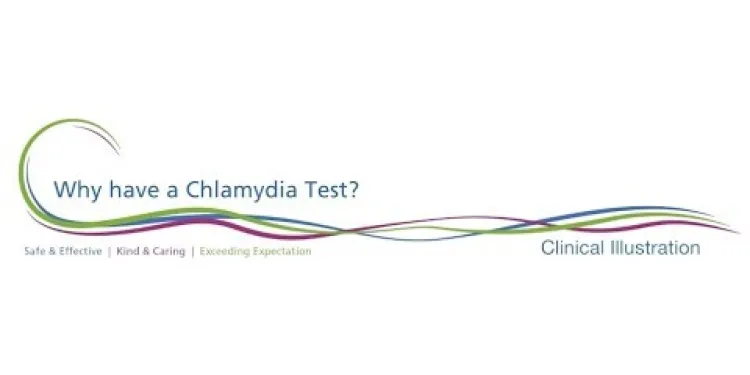
Getting tested for Chlamydia
Relevance: 25%
-
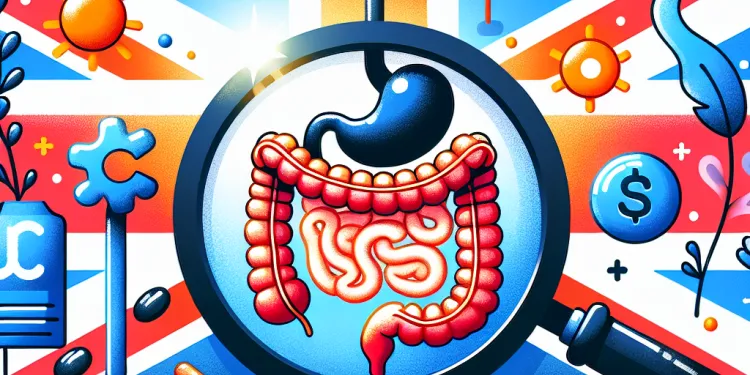
Is there a cure for Crohn's disease?
Relevance: 25%
-

Cervical screening for women who have experienced sexual assault | NHS
Relevance: 24%
-

What is the best diet for Crohn’s disease?
Relevance: 24%
-
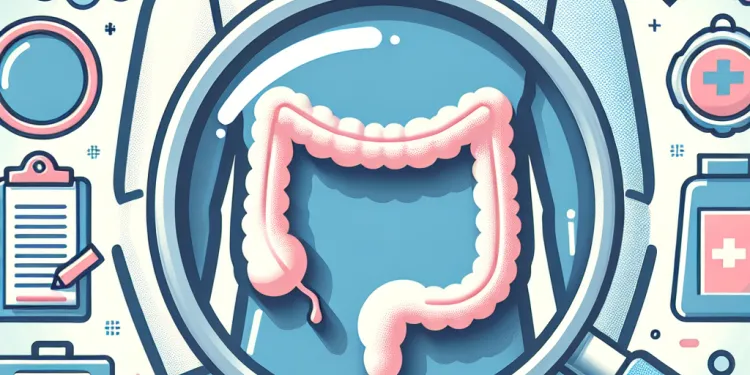
How is Crohn's disease diagnosed?
Relevance: 23%
-

Is Lyme disease contagious between humans?
Relevance: 23%
-
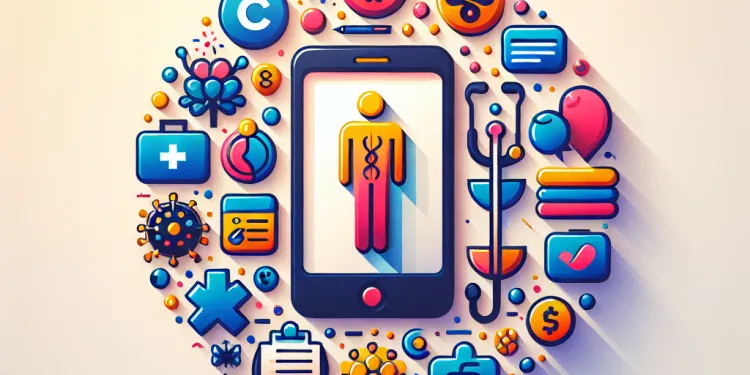
Is Crohn's disease contagious?
Relevance: 23%
-
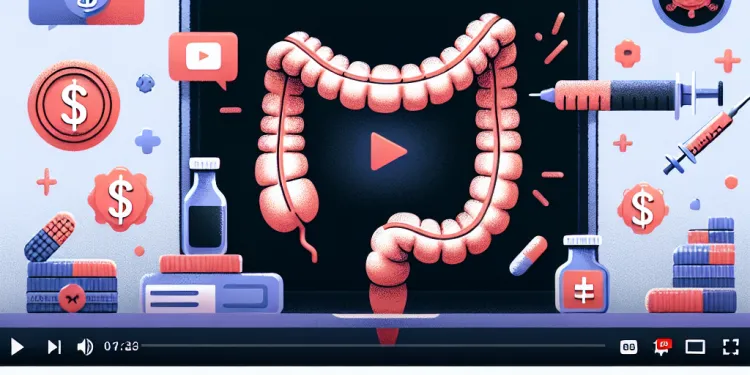
What causes Crohn's disease?
Relevance: 23%
Understanding Your Sexual Health - Pelvic Inflammatory Disease
What is Pelvic Inflammatory Disease (PID)?
Pelvic Inflammatory Disease (PID) is an infection of the female reproductive organs, including the uterus, fallopian tubes, and ovaries. It is most commonly caused by sexually transmitted infections (STIs), such as chlamydia and gonorrhoea. PID can lead to serious health complications if left untreated, including chronic pain and infertility.
Symptoms of Pelvic Inflammatory Disease
The symptoms of PID can vary from mild to severe. Common symptoms include:
- Lower abdominal pain and tenderness
- Unusual vaginal discharge that may have an odour
- Fever and chills
- Pain during intercourse or urination
- Irregular menstrual bleeding
Some women may not exhibit any symptoms, making regular sexual health checks crucial for early detection and treatment.
Diagnosis and Treatment
If you suspect you have PID, it is important to seek medical attention promptly. Your healthcare provider may perform a pelvic exam, analyse your medical history, and order tests such as blood tests, urine tests, or ultrasounds. Early treatment typically involves a course of antibiotics to treat the infection.
It is crucial to complete the full course of medication even if symptoms improve. Your sexual partner(s) should also be treated to prevent re-infection.
Prevention and Sexual Health Practices
Preventing PID involves practising safe sex and maintaining regular sexual health check-ups. Here are some key practices to consider:
- Use condoms to reduce the risk of STIs.
- Ensure regular screening for STIs, especially if you have multiple sexual partners.
- Communicate openly with your partner(s) about sexual health and STI testing.
- Seek prompt medical attention if you experience any symptoms of infection.
Good sexual health is fundamental to overall well-being. By adopting safe practices and staying informed, you can significantly reduce your risk of developing PID and other sexual health issues.
Support and Resources in the UK
In the UK, various resources are available to support your sexual health. You can visit your local GP, sexual health clinic, or organisations such as the FPA (Family Planning Association) for advice and testing. NHS services also offer comprehensive information and support for managing and preventing PID and other sexual health conditions.
Understanding Your Sexual Health - Pelvic Inflammatory Disease
What is Pelvic Inflammatory Disease (PID)?
Pelvic Inflammatory Disease, or PID, is an infection in a woman's reproductive organs. These include the uterus, fallopian tubes, and ovaries. PID is often caused by infections you can get from unprotected sex. These infections are called sexually transmitted infections or STIs. Common STIs are chlamydia and gonorrhoea. If you do not treat PID, it can cause bad health problems. These include pain that does not go away and not being able to have babies.
Symptoms of Pelvic Inflammatory Disease
The signs of PID can be mild or very bad. Some common signs are:
- Pain in the lower belly
- Unusual discharge from the vagina, which might smell
- Having a fever and feeling cold
- Pain when having sex or when peeing
- Bleeding between periods
Some women may not have any signs. This is why it is important to have regular sexual health checks to find and treat PID early.
Diagnosis and Treatment
If you think you have PID, it is important to see a doctor quickly. The doctor will check you, ask about your health history, and might do some tests. These tests can be blood tests, urine tests, or scans. The usual treatment is antibiotics. It is very important to take all the medicine the doctor gives you, even if you feel better. Your sex partner(s) should also get treated so they do not give the infection back to you.
Prevention and Sexual Health Practices
You can avoid getting PID by practicing safe sex and having regular health checks. Here are some tips:
- Use condoms to lower the risk of infections.
- Get checked for STIs often, especially if you have more than one partner.
- Talk openly with your partner(s) about sexual health and testing for STIs.
- If you have any signs of infection, see a doctor right away.
Good sexual health is important for feeling well. By being safe and knowing about sexual health, you can lower the chance of getting PID and other health problems.
Support and Resources in the UK
In the UK, there are places where you can get help for your sexual health. You can go to your local doctor, a sexual health clinic, or groups like the FPA (Family Planning Association) for advice and tests. NHS services also give information and help to manage and prevent PID and other sexual health conditions.
Frequently Asked Questions
What is Pelvic Inflammatory Disease (PID)?
Pelvic Inflammatory Disease (PID) is an infection of the female reproductive organs, including the uterus, fallopian tubes, and ovaries. It can cause symptoms such as pelvic pain, fever, and abnormal discharge.
What causes PID?
PID is often caused by sexually transmitted infections (STIs) such as chlamydia or gonorrhoea. It can also occur due to bacteria entering the reproductive tract after childbirth, abortion, or other medical procedures.
How can I tell if I have PID?
Common symptoms of PID include lower abdominal pain, irregular menstruation, unusual vaginal discharge, painful urination, fever, and pain during sex. However, some women may not experience any symptoms.
Is PID curable?
Yes, PID can be treated with antibiotics. However, early diagnosis and treatment are crucial to prevent long-term complications such as infertility.
How is PID diagnosed?
PID is diagnosed through a combination of pelvic examination, medical history, and tests such as blood tests, urine tests, and ultrasounds. Sometimes, laparoscopic surgery may be required for a definitive diagnosis.
Can PID cause infertility?
Yes, if left untreated, PID can cause scarring of the fallopian tubes, which can lead to infertility or increase the risk of ectopic pregnancy.
How is PID treated?
PID is typically treated with a course of antibiotics. In severe cases, hospitalization and intravenous antibiotics may be required. Sexual partners should also be treated to prevent reinfection.
Can I prevent PID?
You can lower your risk of PID by practicing safe sex, getting regular STI screenings, avoiding douching, and ensuring prompt treatment for any infections.
Should my partner be treated if I have PID?
Yes, sexual partners should be treated to prevent reinfection and to reduce the risk of spreading the infection to others.
I had PID; can I still have children?
Many women who have been treated for PID can still have children. However, the risk of infertility increases with the number of PID episodes. Early treatment and follow-up care are vital.
Can PID recur?
Yes, PID can recur if you are exposed to the same or new infectious agents. Practicing safe sex and getting regular health checks can help reduce the risk of recurrence.
Is PID contagious?
PID itself is not contagious, but the infections that lead to PID, such as chlamydia and gonorrhoea, are sexually transmitted and can be spread through sexual contact.
How long does it take to recover from PID?
Recovery from PID can vary. With proper treatment, symptoms often improve within a few days, but full recovery may take several weeks. Follow your healthcare provider’s instructions and complete the full course of antibiotics.
Can PID be mistaken for other conditions?
Yes, PID symptoms can resemble those of other conditions such as appendicitis, ectopic pregnancy, or ovarian cysts. Accurate diagnosis by a healthcare professional is important for appropriate treatment.
Do I need to abstain from sexual activity if I have PID?
Yes, it is recommended to abstain from sexual activity until treatment is completed and both you and your partner(s) have been treated to prevent spreading the infection and reinfection.
What should I do if I have symptoms of PID?
If you have symptoms of PID, seek medical attention promptly. Early diagnosis and treatment can help prevent complications and improve outcomes.
What is Pelvic Inflammatory Disease (PID)?
Pelvic Inflammatory Disease, or PID, is a health problem. It affects parts inside a girl or woman's tummy. These parts help with having babies. Here are some tips to help you understand: - Use simple words - Break down big ideas into smaller parts - Look at pictures or videos about PID If you need help, ask a friend or family member to explain.Pelvic Inflammatory Disease (PID) is when germs make the female body parts like the womb, tubes, and ovaries sick. It can make you feel pain in your belly, have a fever, and have unusual fluid coming out.
What makes PID happen?
PID means pelvic inflammatory disease. It happens when germs get into the body. These germs can come from certain sicknesses you can catch from sex. These are called STIs, like chlamydia or gonorrhea. PID can also happen if germs get in after having a baby, or other medical work inside the body.
How do I know if I have PID?
PID stands for Pelvic Inflammatory Disease. It is important to know if you have it. Here are some signs you might have PID:
- Pain in your lower belly.
- You might feel tired.
- Unusual liquid coming from your private parts.
- Pain when you go to the toilet.
If you notice these signs, it is a good idea to see a doctor. They can help you feel better.
You can also try using a symptom checker tool online to learn more about how you feel.
Some signs of PID are:
- Pain in the lower belly
- Periods that are not regular
- Strange stuff coming from the vagina
- It hurts when peeing
- Having a fever
- It hurts during sex
But some women might not have any signs at all.
If you find reading hard:
- Try reading with a buddy.
- Use apps to read text out loud.
- Break the text into small bits.
- Use a ruler to keep your place when reading.
Can PID be cured?
PID stands for pelvic inflammatory disease. It is an infection in a woman's pelvis.
If PID is treated quickly with medicine, it can get better. But sometimes, it can cause problems that do not go away. It is important to see a doctor if you think you have PID.
To help understand, you can:
- Ask a doctor or nurse to explain.
- Use pictures or videos about PID.
- Ask someone you trust to help you read about PID.
Yes, PID can be treated with medicine called antibiotics. But it is very important to find out and treat PID early. This helps stop problems later, like not being able to have babies.
How do doctors find out if someone has PID?
Doctors can check if someone has PID, which stands for Pelvic Inflammatory Disease, by doing these things:
- Talking about symptoms: The doctor asks questions about how the person feels, like if they have a tummy ache.
- Check-up: The doctor might look at the person's belly or body to see if they can find out more.
- Tests: The doctor might take a small swab, like a cotton bud, to test for any germs that could cause the problem.
- Scan: Sometimes, doctors use machines that can look inside the body to see what is going on.
Support Tools:
- Pictures: Looking at pictures can help understand what PID is and how the checks are done.
- Ask for help: It's okay to ask someone to explain things if they are confusing.
- Take your time: Don't rush; take your time to understand everything.
Doctors find out if someone has PID by doing a few things. They will check the person's body and ask about their health history. The doctor might also do some tests, like blood tests, urine tests, or an ultrasound. Sometimes, they might need to do a special surgery called laparoscopy to know for sure.
Can PID make it hard to have a baby?
PID stands for Pelvic Inflammatory Disease. It is an infection inside a woman's body.
If a woman has PID, it can sometimes make it hard for her to have a baby later.
If you are worried about PID, talk to a doctor.
Using tools like pictures or easy words can help understand more about PID.
Yes, if someone does not treat PID, it can make scars in the fallopian tubes. This can make it hard to have a baby or can make having a baby risky.
Here's how to remember:
- PID stands for Pelvic Inflammatory Disease.
- Scars in the tubes are not good.
- It can be hard to have a baby if there are scars.
- It can also make having a baby not safe.
Try using a calendar to remember doctor visits.
Talking to a nurse or doctor can help a lot.
How is PID treated?
PID means "Pelvic Inflammatory Disease." It is an infection inside the lower belly of someone with female organs. If you think you have PID, you must see a doctor. Here is how PID can be treated:
- Antibiotics: The doctor will give you medicine called antibiotics. They help kill germs that cause infection.
- Rest: It's important to get plenty of rest. Your body needs time to get better.
- Follow-up: You might need to see the doctor again to make sure you are getting better.
- Partner Check: Your partner might need to see a doctor too; this helps stop the infection from spreading.
To help you remember to take your medicine, you can set a reminder on your phone. It's also good to ask a family member or friend to remind you. Always ask the doctor if you have any questions.
Doctors usually treat PID with medicine called antibiotics. If the illness is very bad, you might need to stay in the hospital and get medicine through a tube in your arm. It's important for your boyfriend or girlfriend to get treated too, so you don't get sick again.
How can I stop PID?
You can stay healthy by:
- Using a condom when you have sex.
- Getting checked for infections regularly.
- Not using douches to clean inside your body.
- Seeing a doctor quickly if you think you have an infection.
Should my partner get medicine if I have PID?
If you have PID (Pelvic Inflammatory Disease), it is important for your partner to see a doctor too. The doctor can see if they need medicine.
Here are some tips:
- Talk to your partner about going to the doctor.
- Explain that they might need medicine to stay healthy.
- Use picture charts to help show what PID is.
- Write down questions to ask the doctor together.
Yes, it is important for both people in a couple to get treated. This stops the infection from coming back and spreading to other people.
I had PID; can I still have children?
PID stands for Pelvic Inflammatory Disease. It is an illness in the lower part of a woman's tummy where her womb is.
If you had PID, you might be worried about having babies. Many women who had PID can still have children. But sometimes, PID can make it harder to get pregnant.
If you are concerned, it is a good idea to talk to a doctor or nurse. They can help you understand more and tell you what you can do.
Supportive tools that might help:
- Ask a friend or family member to go with you to doctor visits.
- Write down questions you have before seeing the doctor.
- Use drawings or simple words to help you understand.
Many women who have had PID can still have babies. But, if a woman has PID more than once, it can be harder to have babies. It's important to get help from a doctor quickly and keep going to check-ups.
Can PID come back?
Yes, PID can come back if you get the same germs or new germs. To help stop it from coming back, you can practice safe sex and go to the doctor for check-ups. Using condoms and visiting your doctor regularly can help keep you safe.
Can you catch PID from someone else?
PID is not something you can catch from someone else. But the germs that can cause PID, like chlamydia and gonorrhoea, can be shared when people have sex.
How long does it take to get better from PID?
PID stands for Pelvic Inflammatory Disease. It is an illness that affects parts inside the belly area, usually in women.
Getting better can take different times for different people. Some people might feel better in a few days with treatment. Others might take a few weeks.
Here are some ways to help you get better:
- Take all the medicine that the doctor gives you.
- Rest and take it easy when you feel tired.
- Eat healthy food and drink lots of water.
- Go back to the doctor if you don't start to feel better.
If reading is hard, you can try:
- Using a highlighter to mark important parts.
- Listening to someone read the words to you.
- Using pictures to help you understand.
Getting better from PID is different for everyone. If you take the right medicine, you can start feeling better in a few days. But it might take a few weeks to be all better. Listen to your doctor and take all your medicine. It is important not to stop too early.
Can PID be confused with other illnesses?
Yes, PID symptoms can look like other problems. These include appendicitis, ectopic pregnancy, or ovarian cysts. It is important to see a doctor for the right treatment.
Should I stop having sex if I have PID?
If you have PID, it is a good idea to stop having sex for a while. This can help you get better and stop spreading germs. You can ask your doctor for advice. They can help you learn more about taking care of yourself.
Yes, you should not have sex until you and your partner(s) finish all the medicine. This helps stop the infection from spreading and stops you from getting it again.
What should I do if I feel sick with PID?
If you feel sick with signs of PID, go to the doctor quickly. Finding out early and getting help can stop problems and help you get better.
Useful Links
This website offers general information and is not a substitute for professional advice.
Always seek guidance from qualified professionals.
If you have any medical concerns or need urgent help, contact a healthcare professional or emergency services immediately.
Some of this content was generated with AI assistance. We’ve done our best to keep it accurate, helpful, and human-friendly.
- Ergsy carfully checks the information in the videos we provide here.
- Videos shown by Youtube after a video has completed, have NOT been reviewed by ERGSY.
- To view, click the arrow in centre of video.
- Most of the videos you find here will have subtitles and/or closed captions available.
- You may need to turn these on, and choose your preferred language.
- Go to the video you'd like to watch.
- If closed captions (CC) are available, settings will be visible on the bottom right of the video player.
- To turn on Captions, click settings .
- To turn off Captions, click settings again.
More Items From Ergsy search
-

Understanding Your Sexual Health - Pelvic Inflammatory Disease
Relevance: 100%
-

BSL Pelvic inflammatory disease (PID)
Relevance: 82%
-

Pelvic health: prolapse
Relevance: 50%
-

Understanding Your Sexual Health - Gonorrhoea
Relevance: 49%
-

Pelvic health: prolapse
Relevance: 48%
-

Your pelvic health matters: insights from NHS clinicians
Relevance: 45%
-

Pelvic health: Urge Incontinence
Relevance: 41%
-

The Pelvic Floor Muscles - Developing an Exercise Programme
Relevance: 40%
-

The Different Roles in Sexual Health and Family Planning UK
Relevance: 40%
-

Pelvic Floor Exercises - Using Your Pelvic Floor to Calm Down Your Bladder
Relevance: 39%
-

Pelvic health: stress urinary incontinence
Relevance: 38%
-

Pelvic Floor Exercises - Using Your Pelvic Floor to Calm Down Your Bladder
Relevance: 38%
-

Sexual Health - HIV Testing
Relevance: 38%
-

How to do pelvic floor exercises | NHS
Relevance: 37%
-

Understanding Your Sexual Health - Genital Warts
Relevance: 36%
-

Let's Talk Sexual Health - Home Self Testing Kits
Relevance: 36%
-

Let's Talk Sexual Health - Home Self Testing Kits
Relevance: 35%
-

Understanding Your Sexual Health - Herpes
Relevance: 35%
-

Sexually transmitted infections STIs
Relevance: 30%
-

Pelvic Girdle Pain Advice Class
Relevance: 29%
-

The symptoms of gonorrhoea
Relevance: 28%
-

Are there any long-term effects of gonorrhoea?
Relevance: 28%
-

NHS - Chlamydia
Relevance: 27%
-

Can gonorrhoea be asymptomatic?
Relevance: 27%
-

What is 'the clap'?
Relevance: 26%
-

Chlamydia: The Silent Threat
Relevance: 26%
-

What is Gonorrhoea?
Relevance: 26%
-

NHS STI (Sexually Transmitted Infections) Information Video
Relevance: 25%
-

What is chlamydia?
Relevance: 25%
-

Three-year limit for child sexual abuse claims to be removed
Relevance: 25%
-

What Causes Erectile Dysfunction (ED) - Disease or Symptom - NHS A to Z - Dr Gill
Relevance: 25%
-

Mat and gym ball exercises with pregnancy related Pelvic Girdle Pain
Relevance: 25%
-

Getting tested for Chlamydia
Relevance: 25%
-

Is there a cure for Crohn's disease?
Relevance: 25%
-

Cervical screening for women who have experienced sexual assault | NHS
Relevance: 24%
-

What is the best diet for Crohn’s disease?
Relevance: 24%
-

How is Crohn's disease diagnosed?
Relevance: 23%
-

Is Lyme disease contagious between humans?
Relevance: 23%
-

Is Crohn's disease contagious?
Relevance: 23%
-

What causes Crohn's disease?
Relevance: 23%


